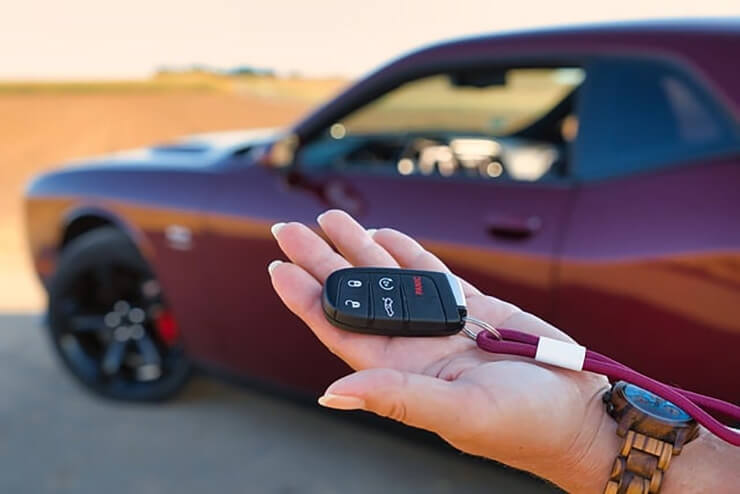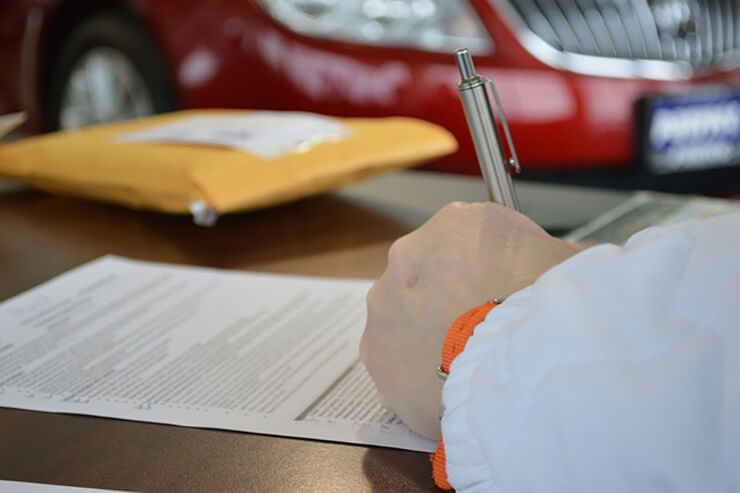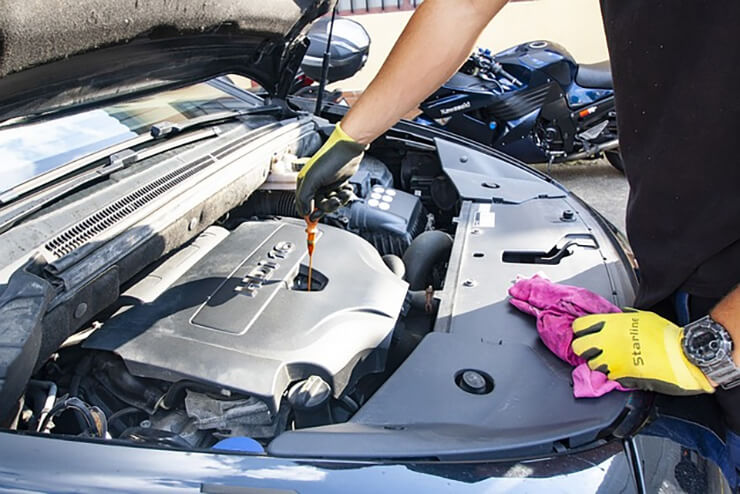Buying from a Dealer vs Private: Pros and Cons
When it comes to buying a used car, the choice between a dealer and a private seller is an important one. This article dives into the pros and cons of each, helping you understand the best option for your needs and budget when considering “should I buy from a dealer vs private?” It’s a common question we hear from our clients when applying for a car loan, and we’re here to give you the information you need to make the right decision for your unique situation.
Important points to note
- Buying from a dealer offers convenience, legal protections, and warranties but often comes at a higher cost due to hidden fees and higher overheads.
- Purchasing from a private seller can result in lower prices and more room for negotiation, but there is a need for thorough due diligence (we can help with this!).
- Regardless of the purchasing method, buyers should carefully consider financing options and additional costs such as stamp duty and insurance to avoid unforeseen financial burdens.
Dealer vs Private Seller: An Overview
When the time comes to add a new set of wheels to your garage, the debate often circles around the most enticing deal, a vehicle you can trust, and quality that stands the test of time. Imagine walking through a dealership, a space where every detail is meticulously handled for you, from the paperwork to the promise of a car that’s been given a clean bill of health, complete with a warranty.
On the flip side, picture meeting in the seller’s neighbourhood, where the price might be kinder to your wallet, as most private sellers don’t add the dealer fees or commissions to the car’s cost. As a savvy car buyer, you’re tasked with finding that sweet spot where the right car meets the right price, all while juggling considerations of time, hassle and paperwork.
Cost is a driving factor in the used car market, and it’s not just about the sticker price on the windshield. There’s a labyrinth of ‘drive away’ prices, stamp duty, insurance, and unexpected extras that can steer your budget off course. So, as you start this journey, consider not only the upfront cost but also the long-term implications of your purchase.
Advantages of Buying from a Car Dealer

Step into a dealership, and you’ll find yourself in a one-stop-shop, where financing, insurance, and vehicle protection services are all part of the package. Salespeople, armed with expertise, stand ready to tailor their advice to fit your budget and driving aspirations.
And once you’ve driven off, after-sales support continues with workshop maintenance, spare parts, additional warranty options, all while resting assured that your car meets the legal standards of title and ownership.
Comprehensive Warranties and Guarantees
When buying a car from a dealership, you’re not just purchasing a vehicle; you’re securing a promise. Warranties, a rarity in private sales, come standard when you buy through a dealer. These safety nets range from compulsory or statutory warranties to extended warranties, offering peace of mind for used car buyers.
Imagine the reassurance of knowing that a statutory warranty (called a dealer guarantee in New South Wales) covers your car for specific faults and defects for up to 3 months post-purchase, depending on car age and mileage. Conditions vary depending on the State the car is registered in.
And for those who desire an even thicker security blanket, extended warranties can often be included in the deal, extending your coverage and your peace of mind.
Trade-In Options
Imagine a seamless upgrade from your old faithful car to a newer option. Dealers excel in simplifying this process, often allowing you to trade in your current car and potentially drive out with a fresh one the same day. They may even entice you with competitive trade-in values, particularly if your old car is a desirable model in good condition. The attraction of a better deal is further sweetened as dealerships can offer competitive values as part of the purchase deal, potentially offsetting the cost of your upgrade.
Legal Protections and Consumer Rights

Australian Consumer Law stands guard over your vehicle purchase, declaring that vehicles must meet the ‘acceptable quality’ standard and ensuring your safety and the car’s functionality. Used vehicles purchased from a dealer are protected by a consumer guarantee under the motor dealers legislation which means you are entitled to:
- statutory warranty (covered above)
- a cooling off period
- guaranteed clear title on the vehicle
- access to a claim fund, which may compensate you if you suffer financial loss as a result of a car dealers actions
To bolster this, licensed dealers often belong to the Motor Traders’ Association, committing to a code of ethics that further ensures fair play in your dealings.
Disadvantages of Buying from a Car Dealer
However, the dealership route is not without its bumps. The shiny showroom and the promise of a hassle-free experience come at a price, often a higher one, due to hidden fees and the possible pressure of sales tactics. Some of the common hidden fees and unexpected costs to watch out for include:
- Documentation fees
- Mandatory add-ons
- Extended warranties
- Dealer preparation fees
- Advertising fees
These additional costs can inflate the final price, leaving you to wonder if the convenience was worth the extra expense. And while you may enter the dealership with a clear budget in mind, the art of sales may lead you down a path of hasty decisions and buyer’s remorse.
Higher Cost Margins
The glint of dealership lights and the gleam on the showroom floor are not just for show; they’re part of the overhead costs that find their way into the price of your car. From the rent the dealer pays to the wages of their team, every aspect of a dealership’s operation contributes to the cost margins you see on the price tag.
And don’t forget, the vehicle inspections and repairs necessary to ensure you’re driving away in a dependable car also add a few more dollars to the final bill.
Limited Room for Negotiation
When it comes to haggling over the price, the dealership floor can sometimes feel like a chess match where the dealer holds most of the pieces. Their salespeople are well-trained in the art of negotiation, often with the goal of maximising profits, which makes striking a better deal a complex task for buyers.
With their pricing strategies firmly in place, dealerships are typically less flexible in their dealings compared to private sellers, leaving you with a narrower field to negotiate in terms of price.
Benefits of Buying from a Private Seller
Turning to private sellers can present opportunities to snag a better price, as their need to quickly move on from their vehicle often translates to a more attractive price tag. The absence of dealer fees and commission expenses means that private sale prices are often more palatable to your budget. The lack of overhead costs such as those incurred by dealerships is an advantage for buyers looking for a bargain.
On top of that, private sellers are typically driven by the desire to sell quickly and avoid the hassle, which can make them more receptive to negotiations, potentially leading to a deal that makes sense for both parties.
Potentially Cheaper Price
The absence of dealership expenses such as advertising, sales commissions, and showroom maintenance allows private sellers to offer their cars at a price point that can be significantly lower than what you’d find at a dealership. This cheaper price is a magnet for used car buyers who are looking to maximise value without the additional costs typically found in dealership pricing, making it an attractive option for those seeking cars sold by private sellers.
Additionally, the private sale arena is ripe for negotiations, where sellers might be willing to accept a lower purchase price out of an urgent need to sell, presenting a potential windfall for astute buyers.
Direct Communication with Previous Owner
There’s a certain charm in buying used cars from their previous owners. Engaging in direct communication offers a window into the car’s past, providing insights into its maintenance history and any potential issues. This transparency can be invaluable, as it allows you to gauge the car’s condition beyond what’s visible to the naked eye.
Understanding how the car was driven and whether it’s been in any minor accidents can help you make a more informed decision.
Risks of Buying from a Private Seller

While the prospect of a private sale may be enticing, it’s not without its hazards. The absence of warranties means you’re on your own once you drive away, with any post-purchase issues falling squarely on your shoulders. Vehicle history can be challenging to navigate, with private sellers not always forthcoming with complete records or known issues. The onus is on you to ensure you’re not inheriting someone else’s problems.
No Warranties or Guarantees
Without the safety net of a warranty, the stakes are higher when buying from a private seller. There’s no requirement for them to offer any form of guarantee, and they’re not legally obligated to disclose issues with the vehicle. Should any mechanical or functional problems arise after the sale, it falls to you, the buyer, to address them, often at significant cost and inconvenience.
To mitigate these risks, having the car thoroughly checked by a professional mechanic before purchase is not just advisable; it’s essential. This check is often referred to as a pre-purchase vehicle inspection, and can be carried out by your local qualified mechanic or motor association such as RACQ.
Need for Due Diligence when buying a used car
Due diligence is the compass that guides you safely through the private car buying process. An independent inspection by a trusted mechanic is a crucial part of this, ensuring the vehicle is sound and roadworthy. Obtaining a full service history can shed light on the car’s care and maintenance, hinting at its potential longevity.
A vehicle history report is an invaluable tool, providing a detailed account of the car’s past, including any previous accidents or maintenance records. Evidence of regular, scheduled maintenance is a sign of a well-cared-for car and can be a deciding factor in whether to proceed with the purchase.
How the team at FLOW reduces the risks of buying a car privately
Thankfully, the team at FLOW Financial Services help to mitigate the risk of buying a car privately. We can take away some of the risks so you can seriously consider the option of purchasing privately and enjoying a lower sale price, yet receiving additional protections for your peace of mind.
When you purchase a car privately with finance from FLOW, we facilitate the sale so there are no concerns about existing finance not being paid out on the sellers car before your purchase. We also carry out due diligence on the vehicle, ensuring there is no theft or fraud involved in the car you are purchasing.
Additionally, we have a multitude of products available such as warranties, comprehensive car insurance options, vehicle repair loans and mechanic referrals to maximise your protection.
Practical Tips for Buying a Used Car Privately

Shopping for a car in the private market can be more convenient, using online car listing websites or local newspapers. It’s important however, to approach the process with a discerning eye. Here are some tips to keep in mind:
- Inspect the car thoroughly
- Ask the right questions
- Be mindful of common scams
- Remember that the paperwork can be a minefield, so get help from someone who understands the requirements, if you’re not feeling confident
Having a lender present during the sale can ensure the title transfer is handled properly, securing your new purchase and peace of mind.
Inspecting the Vehicle
The test drive is your first real introduction to your potential new car, making it a critical component of the inspection process. Pay close attention to how the vehicle handles the road and check everything is working as it should, for example:
- brakes
- windows
- locks
- lights
- windscreen wipers
- seatbelts
Don’t forget to check the basics too, such as the odometer reading, radiator cap, and for any oil leaks, as they can be telltale signs of underlying problems.
Verifying the Vehicle’s History
A thorough background check is as important as a physical inspection. A VIN check, which involves the vehicle identification number, can reveal important details about the car’s history, including any prior accidents or ownership changes. It’s crucial to ensure that there’s no outstanding finance on the car, which could cause headaches down the line. Checking the Personal Property Securities Register (PPSR) can prevent the unwelcome surprise of inheriting someone else’s debt with your new car.
Unlike private sales, licensed motor dealers typically guarantee the title, giving you additional assurance that the car is free from financial encumbrances. For an even deeper dive into the car’s past, vehicle history reports from trusted sources like Revs Check Report or Equifax can provide a comprehensive view of the car’s maintenance and collision history. We share more tips in our article Buying a used car.
Financing Your Purchase
The path to purchasing your car may lead you through various financial options, depending on whether you’re dealing with a car dealer or a private seller.
Dealerships typically have partnerships with lenders and brokers, and can offer a variety of financing options, each tailored to different needs and circumstances. Be wary, though, as the initial low-interest rates from secured car loans through dealerships can sometimes come with strings attached in the form of hidden fees or balloon payments. Dealership finance providers may not have your best interests at heart and may be more focused on getting the deal through, without thoroughly investigating the best finance option for you, the buyer.
In contrast, private sales typically require upfront payment, and buyers will often need to explore external lending options such as personal loans or used car loans, which can offer greater flexibility and faster approval during a car sale. Similar to getting finance for a dealership used car, be sure to choose a lender or broker who is looking out for your needs as the buyer, rather than simply trying to close a finance deal. Select finance brokers like us here at FLOW who can arrange car finance preapproval to give you confidence to go car shopping and have access to wholesale interest rates, and can pass on savings to you, depending on your overall financial position.
Secured vs Unsecured Car Loans
Secured car loans can improve affordability when it comes to car financing, offering lower interest rates by using the car as collateral. However, tread carefully, as failing to keep up with payments on your car loan could result in losing your newly acquired vehicle.
On the other hand, unsecured car loans free you from the worry of collateral but come at the cost of higher interest rates, making them a more expensive proposition in the long run.
Final Considerations
Before you sign on the dotted line and take the keys into your hand, remember that the road to car ownership doesn’t end with the sale. Stamp duty, a tax on the market value, is a mandatory stop on your journey, regardless of your buying choice.
And don’t forget about checking in with your insurance provider – the addition of a new vehicle will affect your insurance premium, and it’s best to have an understanding of the insurance cost before committing to the purchase.
Summary
Whether opting for the well-worn path of a dealership or the route of a private seller, each has its unique set of advantages and considerations. The decision ultimately hinges on what you value most: the security and convenience of dealership warranties and services, or the potential cost savings and personal touch of a private sale. Equipped with the insights and tips from this guide, you’re now ready to steer your decision with confidence and start looking for the perfect car for your needs.
FAQs
The main benefits of buying a used car from a dealership include comprehensive warranties, after-sales services, legal protections, and the convenience of financing and trade-ins all in one place. This can simplify the car-buying process and provide added peace of mind.
Yes, you can negotiate the price when buying from a private seller as they are often motivated to sell quickly and may offer a better deal than a dealership.
When buying a car from a private seller, be cautious of the lack of statutory warranty and the need for due diligence. It’s important to conduct a thorough inspection, verify the vehicle’s history and any financial emcumbrances and be aware of the required paperwork to avoid inheriting hidden problems and encountering scams.
If you choose our team at FLOW to help with your car finance, our experienced team can help to take away many of the risks of buying from a private seller.
Secured car loans use the car as collateral, often resulting in lower interest rates, while unsecured loans do not require collateral but have higher interest rates, potentially making them more costly in the long run.
Yes, in some jurisdictions like Australia, there is a 24-hour cooling-off period when buying a used car from a dealership, allowing buyers to reconsider their decision. This benefit is not available when buying from a private seller.

